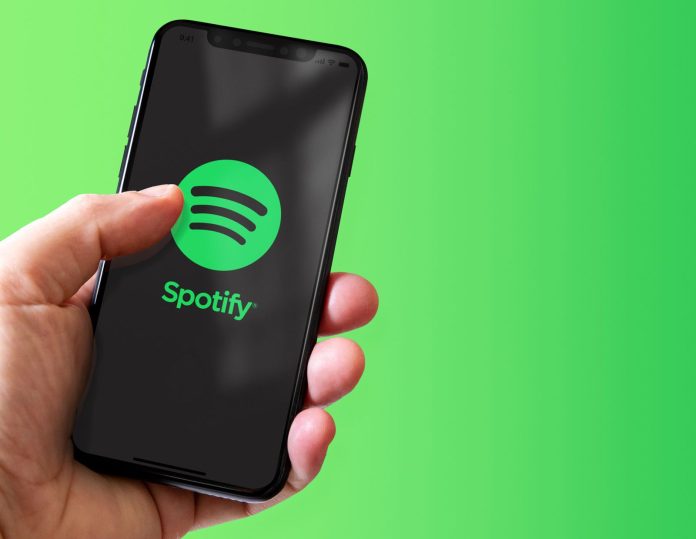Global streaming giant Spotify has rolled out new measures to shield artists, songwriters, and producers from the growing misuse of artificial intelligence in the music industry.
The company announced the policies in a statement on Thursday, saying the rise of AI tools has created both opportunities and threats for creatives.
While some musicians are already experimenting with AI to enhance their sound, others fear being impersonated or drowned out by spammy, machine-generated tracks.
“Unauthorized use of AI to clone an artist’s voice exploits their identity, undermines their artistry, and threatens the fundamental integrity of their work. Some artists may choose to license their voices to AI projects—and that’s their choice to make. Our job is to do what we can to ensure that the choice stays in their hands,” Spotify said.
The platform said it has introduced a clear impersonation policy to tackle the spread of vocal deepfakes—AI-generated songs that mimic the voices of popular stars without consent.
Under the new rule, voice clones will only be allowed when the original artist has given approval.
Spotify also said it is testing fresh tactics with music distributors to stop scammers who fraudulently upload tracks to other people’s profiles.
It added that it is investing more in its “content mismatch” system to help artists report such cases even before a song is officially released.
Beyond voice cloning, the company said it is also targeting the flood of low-quality, AI-generated music uploaded in bulk to gaming streaming royalties.
“Total music payouts on Spotify have grown from $1B in 2014 to $10B in 2024. But big payouts entice bad actors,” the company explained.
To counter this, Spotify will launch a new spam-filtering system this fall to identify and stop tracks created to game the system with duplicates, artificially short tracks, or SEO tricks.
The rollout, it added, would be gradual to avoid wrongly penalising genuine creators.
In another move, Spotify announced it will begin displaying disclosures in music credits to show when and how AI was used in a track.
Working with industry partners under the DDEX standard, this will allow listeners to know whether AI helped with vocals, instrumentation, or post-production.
“We know the use of AI tools is increasingly a spectrum, not a binary. The industry needs a nuanced approach to AI transparency,” Spotify said.
The platform said these steps are designed to preserve trust in music streaming while giving artists freedom to experiment with new tools.
“Our priorities are constant. We’re investing in tools to protect artist identity, enhance the platform, and provide listeners with more transparency,” the company noted.
Spotify disclosed that in the last 12 months alone, it had removed over 75 million spam tracks, underscoring the scale of the challenge.
AI-generated music has divided the global industry. While some artistes openly experiment with AI tools, others see it as a threat.
In 2023, Universal Music Group petitioned streaming services to block AI companies from scraping its catalogue for training data.
-Advertisement-
Grab our latest Magazine, "Chief Wole Olanipekun, CFR, SAN, A man of wide horizons and deep intentions". Get your order fast and stress free.
For more details about Newswire Law&Events Magazine, kindly reach out to us on 08039218044, 09070309355. Email: newswiremagazine@yahoo.co.uk. You will be glad you did







